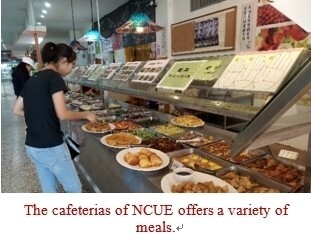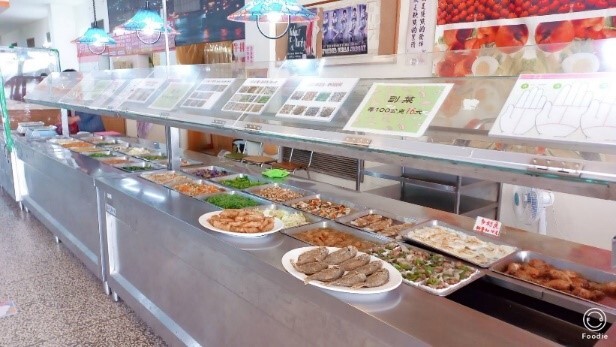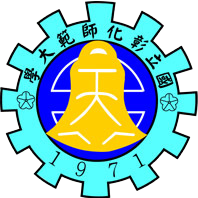SDG2.3.1 Student food insecurity and hunger
Following a three-level management mechanism for campus food safety and hygiene, NCUE cooperates with the Ministry of Education to conduct on-site guidance every academic year. NCUE has also set up a food management committee to coordinate work across units. Nurses appointed to serve as hygiene supervisors inspect the catering places every week, checking the campuses’ food safety for teachers and students. The school attaches great importance to food safety and helping students with hunger. The Food Safety Management Measures for School cafeterias ensure food safety for NCUE’s teachers, students, and staff.
1. Food safety management measures for school cafeterias:
1.1 NCUE has school cafeterias at both the Jinde and Baoshan campuses. Both cafeterias use ingredients registered on the Ministry of Education’s ingredient source database in accordance with the Ministry’s regulations. They use local seasonal ingredients to provide the teachers and students with a variety of safe, healthy, and delicious meals.
 1.2 To ensure the safety of the food consumed by the teachers and students, NCUE has implemented a Zero Food Safety Incident Policy and food safety education and management measures since 2014. The relevant measures are as follows:
1.2 To ensure the safety of the food consumed by the teachers and students, NCUE has implemented a Zero Food Safety Incident Policy and food safety education and management measures since 2014. The relevant measures are as follows:
1.2.1 Education and training for the catering staff: NCUE notifies them of the latest health and safety regulations and food safety information and requires thorough and reliable execution.
1.2.2 NCUE compiles standard operating procedure lists and checklists of food safety to establish controllable and manageable sanitation procedures. The safety procedures ensure that personnel can immediately identify and review the key problems when food safety incidents happen and solve the problems quickly.
1.2.3 Food ingredients registration: NCUE controls food safety by monitoring the source of all ingredients. The cafeterias properly manage and control the ingredients, checking them one by one against the information registered on the Ministry of Education’s ingredient source database.
1.2.4 Internal and external third-party supervision teams assist NCUE in supervising and improving the safety and hygiene of school cafeterias.
1.2.4.1 Nurses visit the school cafeterias every week to check the hygiene.
1.2.4.2 The Changhua County Public Health Bureau helps implement annual food safety and hygiene inspections of NCUE’s school cafeterias.
1.2.4.3 Together with the agricultural and health authorities, the Ministry of Education conducts random checks on the management and maintenance conditions of NCUE’s food safety to maintain NCUE’s food safety and health and improve the quality.
Annex:
Annex 2.3.1A for the NCUE Management Measures for School cafeterias
2. NCUE has adopted these specific measures to encourage teachers and students to maintain a safe and healthy diet :
2.1 The menus of NCUE’s cafeterias emphasise healthy eating, including vegetarian and vegan meal options, to protect the well-being of its teachers and students and respect Taiwan’s eating habits. Diners can enjoy a variety of foods, including selections from the self-service fruit and vegetable bars, to achieve a healthy, enjoyable, and balanced diet.
2.2 The cafeterias post nutrition guides and knowledge about healthy diets to encourage teachers and students to eat safe, healthy foods: the dining tables show suggestions for mixing different food types; wall posters and TV screens offer nutrition information and health education guidelines; and nutritionists visit to share healthy diet tips. The cafeterias also hold fun activities such as garden parties with ‘vegetable battles’ to convey dietary health knowledge.

Suggestions on healthy diets are posted on the meal pick-up tables to enhance teachers’and students' knowledge regarding healthy dieting.

